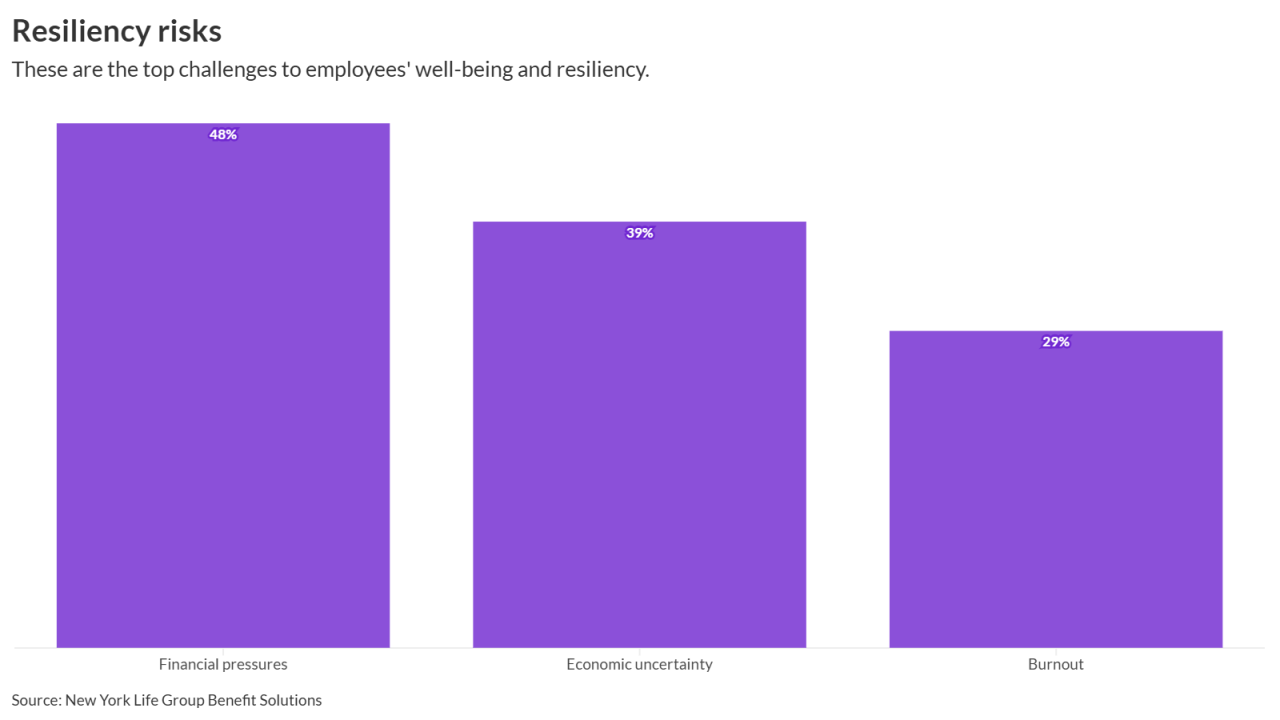A new workplace trend is keeping employees from taking advantage of their paid time off, and they may need a nudge from their managers in the right direction.
Processing Content
"Holiday hoarding" refers to the habit of letting PTO build up. Employees may feel as though they are under too much pressure or might worry that they will fall behind at their job if they take the time off. And while being committed to a career can be rewarding, doing so at the expense of their own health and well-being will end poorly for both employees and employers.
"Stressed out workers are not taking the time off that they need to rest," says Peter Duris, the CEO and co-founder of Kickresume, an AI-based career tool. "Some employees might be reluctant to take time off because they feel worried they will be overlooked. Others might be saving up their PTO in case of an emergency."
Read more: PTO policies need a reboot — this platform has a plan
For some organizations, there may still be a culture of overwork that makes them feel as if everyone is working flat-out all the time, according to Duris, which makes already anxious employees feel like they'd stand out or let their team down if they took any time off. In those cases, the fallout of "holiday hoarding" could have deeper and long-term negative consequences, like a burnedout workforce.
According to a recent survey from Kickresume, 39% of employees have already quit a job for the sake of their mental health. That means that nearly four in ten workers have felt that staying in their role was simply not worth the toll it took on their well-being, adding another significant burden onto employees. And high levels of burnout don't bode well for organizations concerned with engagement and loyalty, especially as 33% of employees admitted that they've considered quitting but haven't gone through with it yet.
"Employers whose staff are holiday hoarding might find that their team is exhausted," Duris says. "An unhappy workforce also leads to less productivity, fewer creative ideas and less effective teamwork. It contributes to rapid turnover, with staff feeling so stressed that they decide to find another job."
Finding solutions
Fortunately, there are actionable items organizations can rely on to make impactful change. For example, the systems employees use to request PTO could make a big difference, Duris says. Some might find it easier to add a date or two to an online portal than to personally reach out to their manager and ask for time off where they may feel pressured to give a reason. Those efforts need to be paired with transparency from leadership to be effective, however.
Read more: Want to prevent burnout? Invest in AI benefits and more robust PTO
"Companies need to do more to encourage their employees to use their PTO," Duris says. "Businesses need to build a culture where people feel able to take time off without it making them feel worried that they will fall behind, miss out on opportunities or return to an out-of-control workload."
For companies that have the right budget and the providers, changing leave benefits entirely could provide a solution. Unlimited PTO may seem like the most obvious investment, but even removing the limit on time off can't fix the issue entirely. In fact, it could overwhelm employees more. Instead, commitment from managers to lead by example is critical to any strategy.
"Businesses and their employees, as well as their clients and customers, all benefit when team members are well-rested and have a good work-life balance," Duris says. "Employees should feel comfortable knowing that their managers won't think less of them if they take days off for a trip, to spend time with friends and family, or just to relax."





